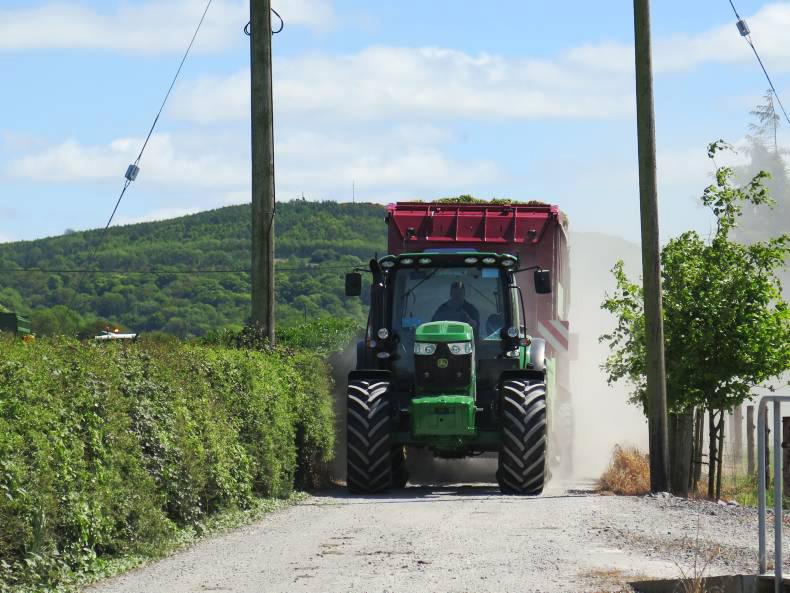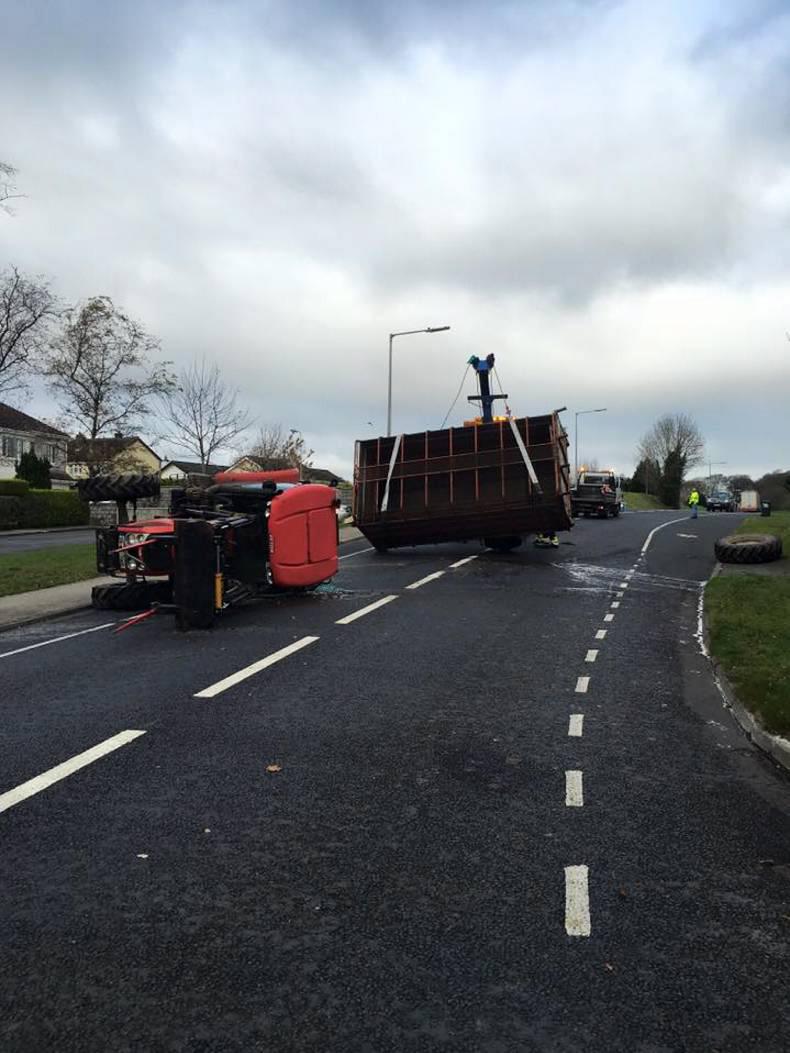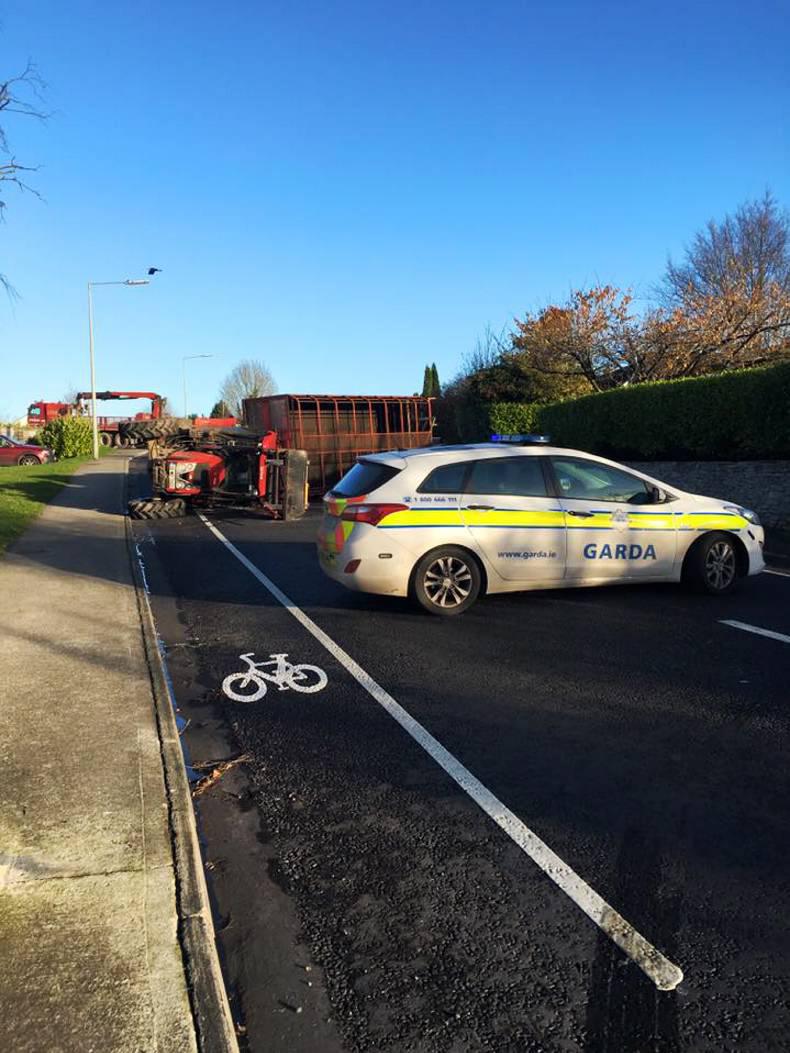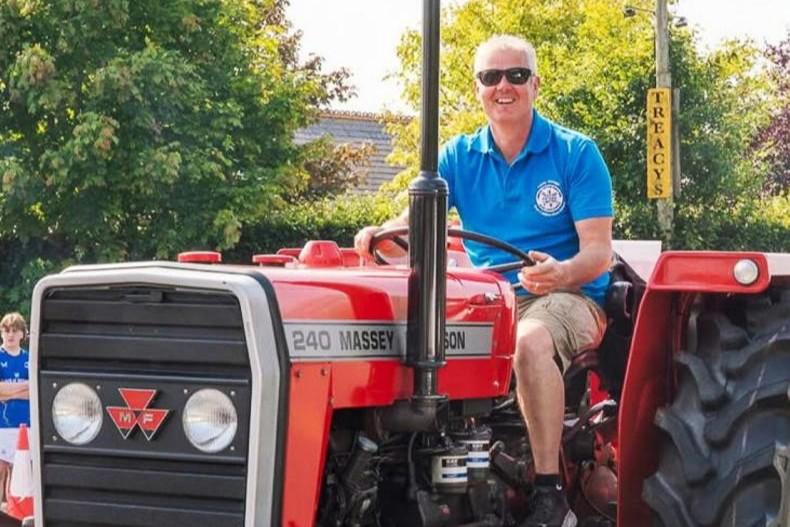I was in Kilkenny when I got the call. At his sister’s hen, in fact. It was the call too many families and friends of farmers are familiar with already.
“Hello, it’s me. I wanted to let you know that I had a little accident with the tractor earlier … well, a big accident, really.”
I was sharing a room with one of his sisters and I could feel her eyes on me now as the voicemail played out.
“He asked us not to say anything,” she said when the recording ended. “He wanted to tell you himself. He’s OK,” she added – but I would need more convincing. However, with dinner scheduled and a group of hungry hens waiting, I knew my return call would have to wait.
We had just sat down when Jack texted me some photos taken by the guards who had arrived at the scene. I saw the tractor cab on its side, one back wheel missing. The trailer it had been pulling had also been upended.
That Jack and the livestock he had been transporting to the mart that morning had walked away okay, with nothing more than a graze to Jack’s forehead, was nothing short of a miracle. I excused myself from the dinner table to call him. His sisters understood. Unlike them, I hadn’t seen him yet. I didn’t have the peace of mind that comes from seeing with your own two eyes that your loved one really is OK.
I found a quiet corner in the lobby of the hotel and he answered after the first ring. I asked him how he was feeling.
“Blessed,” is what he said. His head hurt a little, and he was exhausted, which was only to be expected once the adrenaline rush had worn off.
He kept repeating how lucky he’d been; lucky that it happened when it did – when there were no children crossing the road to the nearby school, lucky that the wheel and vehicle had come to rest where they did; lucky in avoiding a collision with any other vehicle. He would never have forgiven himself, he said, had someone else been hurt, or worse.
He talked about insurance, about needing to collect the tractor. He couldn’t understand how something like this – a wheel just coming undone – could happen to a tractor that was only seven years old. He seemed to want to busy his mind with thoughts of all things practical and sensible. But I knew it was there, alright, tapping at his conscience. I knew he had to be considering how close he’d come to death.
When I saw him the following evening, I looked hard to find the small scratch on his brow, just beneath his hairline. I pictured the tractor laying on its side, the jack-knifed trailer behind it, and I knew, without question, that it was only for the guardianship of some higher power that Jack was sitting there beside me that evening.
The next morning, he asked if I’d like to go to mass with him. It was a mass to mark the anniversary of his uncle’s passing – an uncle who, 30 years before, had died in a farming accident.
In the weeks that have passed since, I’ve noticed a shift in Jack’s mindset. He is more willing to look for the positives in a given situation now. Of course, life as a young, full-time farmer continues to throw him curve balls – delayed payments, a calf with a broken leg, and, as it turned out, the insurance company’s refusal to pay out for the accident, citing the reason as “mechanical failure”. As difficult as this was to process, as unjust as it is, Jack refused to let it get the better of him mentally.
“Control the controllables,” is a common utterance of his these days.
It’s all too easy to downplay the level of risk that comes with farming as a profession – a mindset that, in itself, is dangerous. Farming-related accidents are not limited to the experiences of “other people.” No matter who you are, what age you are, or where in the country you are, if farming factors in your life at all, you are involved in what remains Ireland’s most dangerous occupation.
Last year alone, 24 people lost their lives in farming-related accidents in Northern Ireland and the Republic. Jack is one of the lucky ones. When a routine journey to the mart went awry, his world landed right side up. For too many others, the outcome is, tragically and all-too-often, very different.












SHARING OPTIONS